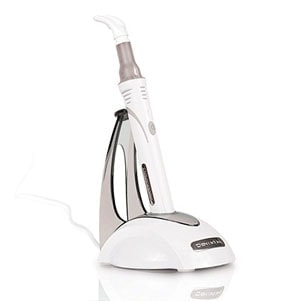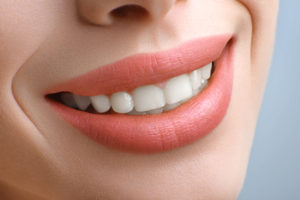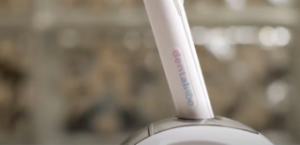Are dentures right for you? Dentures may be unavoidable in some cases, but not everybody needs dentures when they are missing teeth. If you’re missing some of your teeth, learn more about the pros and cons of dentures before making a decision. Other tooth replacement options may also be available to you, depending on the number of missing teeth and your overall oral health.
How do you know it’s time to get dentures?
If you have less than half of your teeth, your dentist may recommend removing the rest of your teeth to make room for a full set of dentures. Missing teeth can cause the remaining teeth to move out of their normal positions, causing gaps between teeth and erosion of the jawbone. Empty sockets also encourage the growth of bacteria responsible for gum disease (gingivitis). In addition, people with many teeth often find it difficult to chew food, which can lead to nutritional deficiencies.
What is the average age for getting dentures?
Although there is really no “average” age at which people are more likely to get dentures, most adults wearing dentures are over the age of 45. Younger individuals who wear dentures have either experienced severe trauma to their mouth, have a genetic disorder that accelerates tooth decay, or simply neglected to take care of their teeth.
Are dentures as good as real teeth?
Dentists want to help you keep your real teeth for as long as possible because they know the health advantages of retaining real teeth. Dentures may function and look like real teeth, but they do nothing to maintain the integrity of the jawbone.
Natural teeth “exercise” the jawbone in a way, by chewing food and passing strong, chewing forces to the jawbone. Since dentures sit on the gums, the jawbone never gets the “workout” it needs to retain density. Long-time denture wearers can develop problems with mouth nerves and muscle attachments due to jawbone atrophy.
Are dentures comfortable to wear?
Although dentures are customized to fit a person’s gum contours and oral dimensions, it can take a while for a person to get used to wearing dentures. Sore spots may develop in the beginning; these often diminish over time as the gums adjust to the pressure of having dentures rest against them. New denture wearers often report an uncomfortable feeling of “fullness” in their mouth and dealing with excess saliva until they get used to their dentures.
What are the disadvantages of dentures?
- Learning to eat with dentures can be difficult. Dentures are not entirely immovable, and may slip occasionally when eating chewy or crunchy food.
- Even the best-fitting dentures tend to move slightly. You may need to speak more slowly to properly enunciate words as you get used to wearing dentures.
- Some denture wearers are prone to gum infections if they don’t clean their dentures as well as they should. It can be tempting not to take care of dentures because you know denture crowns won’t get cavities.
- Dentures will need to be replaced every few years due to wear and tear, gum shrinkage, and age-related changes to your mouth.
- Dentures are more fragile than most people think. Dropping them even on soft surfaces may damage them enough to warrant a replacement.
How painful is getting dentures?
The actual process of being fitted for dentures is not painful. However, the process of extracting teeth is usually the most painful part of getting dentures.
Taking impressions of your mouth using dental putty isn’t painful, but many people find it uncomfortable and a little stressful. Although dental technology is available to take digital impressions of the mouth, most dentists still rely on the traditional method of taking impressions.
In addition, dental procedures that cause discomfort may be needed to prepare the mouth for dentures. For example, people with severe gingivitis may require laser gum surgery to remove diseased portions of the gums before being fitted for dentures.
Can I get my teeth pulled and dentures in the same day?
Although your dentist may provide you with same-day dentures, these are actually temporary dentures that you wear until your permanent dentures are ready. Some people can handle wearing temporary dentures after extractions, while others prefer to wait until their gums heal.
The impression for temporary dentures is made before your teeth are extracted. Wearing temporary dentures may help reduce swelling and pain following extractions. The lining inside temporary dentures is soft enough to allow a dentist to adjust them as your gums change shape during the healing process.
Once your permanent dentures are finished, you simply throw away the temporary dentures and start wearing your new dentures.
How long do you have to wait to get dentures after teeth are pulled?
Dentists typically want patients to wait at least three or four months before they start wearing permanent dentures. This gives the gums time to heal completely. People with temporary dentures can also use this time to begin adjusting to wearing dentures. Since everyone heals at different rates, your dentist will examine your gums to determine if the time is right to transition from temporary to permanent dentures.
What is the average cost of dentures?
Prices for dentures can range from $2000 to $4000. Many factors influence the cost of dentures, such as location, materials, and whether the dentures require special contouring effects in the laboratory.
Snap-on dentures cost much more than traditional dentures because they involve implantation of screws into the jawbone. These screws allow you to simply “snap” dentures in place. Snap-on dentures do not slip or move around like traditional dentures and may improve your ability to chew food.
Does dental insurance cover dentures?
Most dental insurance plans will cover at least half of the cost of dentures. This is because dental insurance typically limits a person’s annual spending cap between $1000 to $1500 per year. In addition, if you have had other dental procedures in any given year that were paid for by your dental insurance, your coverage for dentures could be less than 50 percent. Your dentist’s office can help verify your insurance benefits and put together a treatment estimate for your individual needs.
What can I get instead of dentures?
Dental implants
The most popular alternative to dentures is dental implants. By inserting a titanium screw into the jawbone and allowing the screw to fuse with bone, dentists can affix a natural-looking crown to the screw’s abutment. Unlike dentures, a dental implant does not move, nor can it be removed. Most dental implants last for 20 years with the proper care before they may need to be replaced.
Dental bridges
Sometimes referred to as a partial denture, a dental bridge is a prosthetic crown held in place by dental implants or the natural teeth surrounding it. Although dental bridges can be removed for cleaning, they don’t slip around like dentures and take little time to get used to wearing.
Overdentures
When someone has lost too many teeth to be replaced with dental implants, they might consider overdentures to replace the missing teeth. Overdentures can be held in place by existing teeth or a few dental implants. Overdentures don’t move around as much as traditional dentures and may help retain jawbone integrity.
Keeping your natural teeth for as long as possible is the best way to avoid extractions and dentures. Schedule your next dental visit with a DentalVibe certified, pain-free dentist near you. Visit our directory to find a dentist today!
















